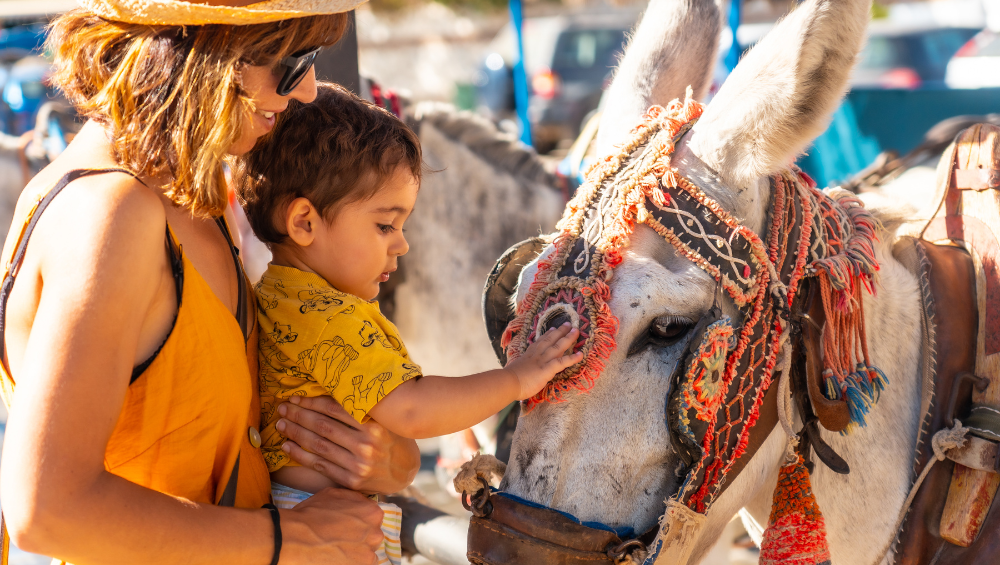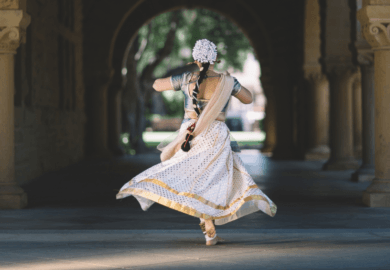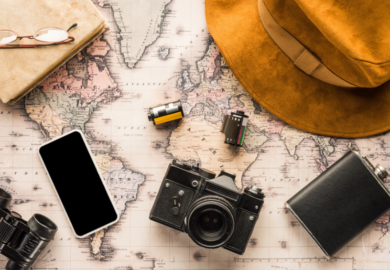Table of Contents
Imagine sitting in a small, rustic kitchen in Tuscany, watching an elderly Italian woman knead dough with the same hands that have been making pasta for decades. This is not an experience you’ll find on the itinerary of a typical tourist trip. This is cultural immersion travel – a way to experience the world authentically, connecting with local cultures in a profound and meaningful way.
What is Cultural Immersion Travel?
Cultural immersion travel is a form of tourism that goes beyond sightseeing. It involves actively participating in the daily lives of the locals and understanding their traditions, customs, language, and cuisine. Unlike traditional tourism, which often separates visitors from the local culture, cultural immersion travel fosters a deep connection between travelers and their host communities.
Preparing for Cultural Immersion
Preparation is key to successful cultural immersion. Start by researching your destination thoroughly, focusing on its history, socio-political context, and cultural practices. Familiarize yourself with local customs and traditions to avoid unintentional disrespect. Acquiring basic language skills can greatly enhance your communication with locals and deepen your understanding of the culture.
7 Resources for Cultural Immersion Travel Research
- Lonely Planet: This comprehensive travel guide provides in-depth information on various destinations, including local traditions, customs, and etiquette.
- Duolingo: An invaluable language-learning app to help you get a basic understanding of the local language before your trip.
- National Geographic Travel: Known for its authentic and immersive travel stories, it offers a rich insight into the history and culture of various destinations.
- TripAdvisor Travel Forums: These forums are a great place to communicate with other travelers and locals to gather firsthand cultural insights about a specific destination.
- Ethical Traveler: A website committed to responsible travel, providing resources and guides on how to respect local cultures and environments during your travels.
- Fodors Travel Guide: trusted and comprehensive resource offering expert recommendations and insights for travelers seeking unforgettable experiences and adventures worldwide.
- Rick Stevens: a travel series hosted by Rick Steves, known for providing insightful and practical tips to help travelers explore and savor the diverse cultures, history, and beauty of Europe on a budget.
Remember, the goal of cultural immersion travel is not just to see a foreign place, but to understand it, to get a sense of its pulse and spirit. These resources are a great starting point for your research.
Cultural Immersion Travel Staying with Locals
Choosing to stay in homestays, guesthouses, or Airbnb experiences can provide a unique insight into local life. These accommodations offer opportunities for genuine cultural exchanges that can transform your travel experience. Many travelers recount heartwarming stories of hospitality and friendship formed through such stays. It also allows you to directly support local communities and contribute to their economies.
Trying Local Cuisine for Cultural Immersion Travel
Trying local cuisine is an integral part of cultural immersion travel. It allows you to understand the culture from a unique, sensory perspective – taste. Traditional recipes often have rich histories, carrying the stories of the local people, their traditions, and their way of life. Sampling local food can provide insight into the region’s agricultural practices, the common ingredients used, and the local climate.
It’s a delicious way to connect with the people you meet, appreciate their culinary skills, and build memorable experiences. Moreover, supporting local eateries directly contributes to the local economy, thereby promoting sustainable tourism.
Participating in Festivals and Celebrations
Local festivals and events offer a fantastic opportunity for cultural immersion. Participating in these celebrations allows you to experience the culture in its most vibrant form. However, it’s important to approach these festivities with respect and understanding. Travelers often recount their festival experiences as some of the most memorable parts of their trips.

Meeting Local People Abroad
Forming friendships with locals can greatly enrich your travel experience. Engage in conversations, show interest in their lives, and be open to their perspectives. These interactions often lead to unforgettable cultural exchanges and lifelong friendships. It can also open doors to unique experiences that are not accessible to tourists, providing a deeper understanding of the local culture.
5 Tips for Safely Meeting Local People
Meeting local people can be one of the most rewarding aspects of cultural immersion travel. Here are some ways to do so safely:
- Join Local Activities or Workshops: Participating in local activities or workshops is a great way to interact with residents. This could include traditional cooking classes, art workshops, or local sports games.
- Volunteer: Volunteering can offer a unique opportunity to connect with local communities while making a positive impact. Organizations often need help in areas such as education, conservation, and community development.
- Use Trusted Platforms: Websites like Couchsurfing and Meetup host events where locals and travelers can meet and interact safely. Always check the reputation and reviews of the event or host before participating.
- Take Guided Tours: Local guides can provide a wealth of knowledge about the area, and often have personal connections within the community.
- Practice Safety Precautions: Always let someone know where you’re going, avoid sharing personal information with strangers, and stay in public, well-lit areas when meeting new people.
Remember, cultural immersion is about authentic connection. Engage with locals respectfully and genuinely, and you’ll find your journeys enriched by shared experiences and new friendships.
Participating in Local Activities
Engaging in traditional activities is integral to cultural immersion travel as it provides hands-on experience of the local culture. Activities often provide opportunities to interact with locals, share experiences, and forge lasting connections. It can also contribute to the local economy, supporting traditional artisans and craftspeople. Therefore, participation in traditional activities enriches the travel experience, creating memories that are both meaningful and lasting.
9 Local Activities for Cultural Immersion Travel
- Traditional Cooking Classes: Participating in a cooking class allows you to learn about the cuisine, ingredients, and culinary traditions of the local culture.
- Art Workshops: Engage in workshops teaching traditional art forms, such as pottery, painting, or textile weaving. This not only supports local artisans but also provides a creative outlet.
- Cultural Dance Lessons: Enroll in dance classes that teach traditional dances. This immersive experience gives insight into the cultural significance and history tied to these dances.
- Local Sports Games: Join in or watch local sports games. This also serves as a social event, providing opportunities for interaction with community members.
- Community Farming: Participate in community farming activities. This can provide insight into local agriculture and sustainable farming practices.
- Historical and Cultural Tours: Take guided tours to historical sites, museums, and landmarks. This enriches your understanding of the local history and heritage.
- Language Learning Classes: Consider taking basic language classes. This can significantly enhance your communication with locals and your overall experience.
- Participate in Local Markets: Visit local markets, interact with vendors, and learn about local products. This can provide a unique insight into daily life and commerce in the area.
- Eco-Tourism Activities: Engage in eco-tourism activities such as nature walks, wildlife watching, or participating in conservation projects. These activities typically support environmental sustainability while promoting an understanding of local ecosystems.
Best Tours for Cultural Immersion Travel
Respecting Local Customs
While immersing yourself in a new culture, it’s crucial to respect its customs and norms. Understanding cultural do’s and don’ts can prevent misunderstandings and foster mutual respect. Stories abound of travelers who’ve had positive experiences by demonstrating sensitivity to local customs.
10 Tips for Respecting Local Customs During Cultural Immersion Travel
- Research Beforehand: Familiarize yourself with local customs, etiquette, and social norms before your visit. This includes understanding behavioral expectations, dress codes, and acceptable conversation topics.
- Follow Local Dress Codes: Respect local dress codes, especially in religious sites or conservative regions. This might mean dressing modestly or removing shoes before entering sacred places.
- Mind Your Manners: Learn basic etiquette, such as greetings, table manners, and how to show respect to elders or authorities.
- Respect Religious Beliefs and Practices: Understand the religious customs of the destination and respect them. This might include not taking pictures in certain areas or respectfully participating in religious rituals.
- Use Local Language: Learn a few phrases in the local language. Even simple phrases like “Hello,” “Thank you,” or “Excuse me” can show respect and appreciation for the culture.
- Respect Public Spaces: Keep noise levels down, don’t litter, and respect monuments and other public spaces.
- Ask Before Photographing People: Always ask for permission before taking photos of local people, their homes, or their possessions.
- Support Local Economy: Purchase from local artisans and businesses instead of large commercial enterprises.
- Observe and Imitate: Observe how locals behave and follow their lead. This can often be the best way to understand the nuances of local customs.
- Be Open and Respectful: Show genuine interest in learning about the culture, and demonstrate patience, understanding, and respect in all interactions.

The Impact of Cultural Immersion Travel
Cultural immersion travel can have a profound impact on both travelers and the local communities. For travelers, it provides opportunities for personal growth, broadens perspectives, and fosters empathy toward different cultures. For locals, cultural immersion tourism can generate income and create platforms for cultural exchange and preservation of traditions.
Overcoming Challenges from Cultural Immersion Travel
Cultural immersion can present challenges, from culture shock to communication barriers. However, these obstacles can be overcome with patience, openness, and a willingness to learn. The challenges faced often become valuable learning experiences in themselves.
8 Tips for Overcoming Challenges
- Embrace the unfamiliar: Stepping out of your comfort zone is a key aspect of cultural immersion travel. Embrace the unfamiliar experiences and customs you encounter, as they will enrich your understanding and appreciation of the local culture.
- Learn the local language: Even basic language skills can improve communication and foster better connections with locals. Consider taking a language course or using language learning apps before your travel.
- Practice patience and respect: Cultural misunderstandings can occur, but patience and respect can go a long way in resolving any issues. Remember that you are a guest in the local culture and respect their customs and traditions, even if they differ from your own.
- Seek local guidance: Locals are often the best source of information about their culture. Seek their guidance to understand local customs and practices better.
- Stay open-minded: Keep an open mind to different perspectives and ways of life. This openness can greatly enhance your travel experience and understanding of the local culture.
- Take care of your well-being: Traveling can be physically and emotionally challenging. Make sure to take care of your health and well-being, ensuring enough rest and maintaining a balanced diet.
- Make use of technology: Use translation apps and other digital tools to help navigate any language barriers and to understand local customs better.
- Learn from your mistakes: Mistakes are inevitable when you immerse yourself in a new culture. However, they can provide valuable learning experiences. Don’t be too hard on yourself, instead, view these as opportunities to learn and grow.
By following these tips, you can navigate the challenges of cultural immersion travel, turning them into valuable learning experiences and memories.
Cultural Immersion While Traveling
Cultural immersion travel offers a richer, more meaningful way to explore the world. It invites you to step out of your comfort zone, embrace new experiences, and form deep connections with people and places. As you embark on your next journey, consider immersing yourself in the local culture for an unforgettable travel experience.
Cultural immersion travel is more than just a vacation; it’s an opportunity for personal growth. The lessons and memories gained from these experiences last long after you return home. They inspire greater empathy, and respect for diversity, and broaden your understanding of the world. Ultimately, cultural immersion travel is about embracing new cultures and making meaningful connections that transcend borders and differences. It’s a way to experience the world like a local – with an open mind, a willing heart, and a hunger for adventure.
FAQs about Cultural Immersion Travel
What is cultural immersion travel?
Cultural immersion travel is a form of tourism that involves experiencing a country or city as a local rather than a visitor. This often includes staying with locals, eating traditional cuisine, participating in local festivals and events, and engaging in traditional activities. The goal is to understand and appreciate the culture from an insider’s perspective.
How to prepare for cultural immersion travel?
Preparation for cultural immersion travel involves thorough research about the destination’s history, socio-political context, and cultural practices. Learning basic phrases in the local language and familiarizing oneself with the local customs and traditions can also be beneficial.
What are the benefits of cultural immersion travel?
Cultural immersion travel can lead to personal growth, broaden perspectives, and foster a deeper understanding and appreciation of different cultures. For the local communities, it can generate income and create platforms for cultural exchange and preservation of traditions.
What are the challenges of cultural immersion travel?
Challenges during cultural immersion travel may include culture shock, language barriers, and differences in customs and traditions. These can be overcome with patience, openness, and a willingness to learn.
How does cultural immersion travel differ from traditional tourism?
Unlike traditional tourism which often separates visitors from the local culture, cultural immersion travel actively involves travelers in the daily life and traditions of the locals. The goal is not just sightseeing but forming deep connections with the people, culture, and the place.



